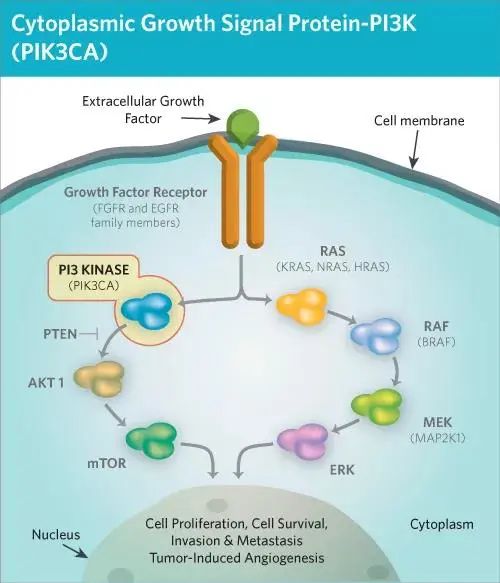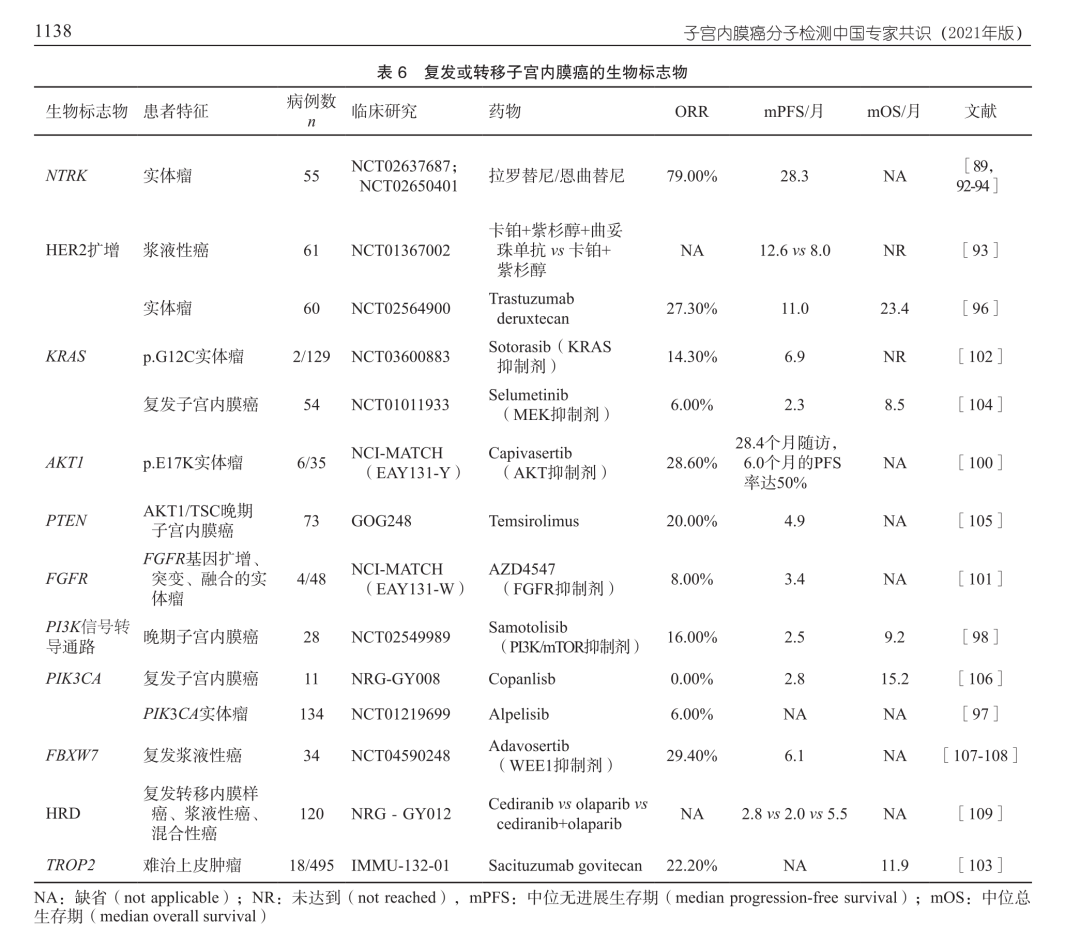Current location: Home > NEWS > Industry news
NEWS
PRODUCTS
PIK3CA gene mutation is common in cancer. How to treat?
News source: Release time:[2022-02-25]
01. PIK3CA target
PIK3CA is an oncogene. In tumor cells, its kinase activity is enhanced, which can continuously stimulate the downstream AKT signal pathway, make cells proliferate independent of growth factors, and increase the ability of cell invasion and metastasis. PIK3CA gene plays an important role in the occurrence and development of tumor and is a better target of intervention and treatment.

PIK3CA gene is located on chromosome 3 and has 20 exons. From the perspective of signal pathway, PIK3CA gene belongs to PI3K-Akt signal pathway, and its main responsibility is to encode p110αProtein.p110α Protein is one of the catalytic subunits of PI3K enzyme. PIK3CA gene mutation will cause PI3K enzyme to be continuously activated, enhance intracellular signal transduction, lead to the disorder of the whole pathway, and cause a series of diseases, including cancer, neuropathy, autoimmune diseases and hematopoietic system diseases.

Schematic diagram of PI3 KINASE (PIK3CA) signal path
About 80% of PIK3CA mutations occur in the two hot spots of Helical and Kinase. The three most common mutations are H1047R in exon 20 andE542K and E545K in exon 9. Many studies have confirmed that PIK3CA mutations exist in many different types of solid tumors. Among them, lung cancer, colorectal cancer and breast cancer are found to be more frequent.
02 Treatment of PIK3CA gene mutation.
At present, there are few PI3K inhibitors that have been approved clinically, and there are two PI3Kδ inhibitors Inhibitors Idelalisib (zydelig) and Umbralisib (UKONIQ) are targeted therapeutic drugs for lymphoma and leukemia;One of the PI3K inhibitors Alpelisib has been approved for breast cancer.
PI3K inhibitor corresponds to cancer caused by PIK3CA gene mutation.There are not many kinds of drugs for this target, but in large demand, it is difficult to cure this kind of gene mutation.
PIK3CA mutation is one of the most common types of carcinogenic mutations. The PIK3CA gene mutation occurs in about 30% of breast cancer, 25% of endometrial cancer, 15% of colon cancer, 10% of ovarian cancer and 5% of lung cancer, and is a carcinogenic mutation of Pan cancer.
03What are the indications of the three listed PI3K inhibitors?
Currently, there are three PI3K inhibitors, two of which are mainly hematological malignancies, and the other is breast cancer in solid tumors.
1) Alpelisib
In May 24th, 2019 FDA approved Piqray (alpelisib, code BYL719) combined with fluticasone in the treatment of postmenopausal women, with hormone receptor positive, HER-2 negative (HR + / HER2-), and confirmed by gene therapy based on endocrine therapy, there were PIK3CA mutations in men and women with advanced or metastatic breast cancer.
Piqray is the first and currently the only target drug approved for this part of breast cancer.
2 )Idelalisib(Zydelig)
Approved indications for Idelalisib include chronic lymphocytic leukemia (CLL), follicular B-cell non-Hodgkin's lymphoma (FL) and small lymphocytic lymphoma (SLL).Some studies also believe that this drug has the effect of preventing brain metastasis.
3) Umbralisib(UKONIQ)
Umbralisib is a new drug just approved at the beginning of this year. On February 5, FDA accelerated the approval of its indications for marginal zone lymphoma and follicular lymphoma.
Umbralisib is a PI3KδWith CK1-ε dual target inhibitor, once won the title of orphan drug in the two indications of marginal zone lymphoma and follicular lymphoma, and was designated as a breakthrough therapy in the indications of marginal zone lymphoma.
04 what other options do patients have?
In addition, there are relevant tumor treatment recommendations in the Chinese expert consensus on molecular detection of endometrial cancer, which has reference value and can be selected by patients.
1 High throughput sequencing is recommended to detect the fusion of TMB and NTRK genes to evaluate the opportunities of immunotherapy or NTRK targeted therapy (class 2A). At the same time, we can consider detecting more targets, such as PIK3CA, KRAS, AKT1, Fbxw7 and PTEN (Category 3).
2 It is recommended to use high-throughput method for detection, which can detect PIK3CA, KRAS, FGFR2 rearrangement or fusion, AKT1, BXW7, PTEN and other gene mutations, ERBB2 gene amplification and other targets at the same time, so as to seek cross cancer drug indications and pan cancer clinical trials, as well as molecular typing.

Consensus of Chinese experts on molecular detection of endometrial cancer
reference
[1] Consensus of Chinese experts on molecular detection of endometrial cancer